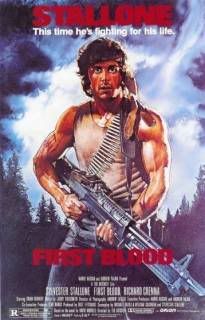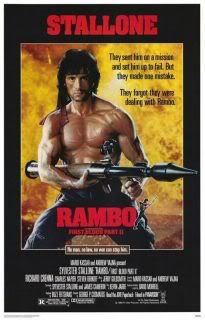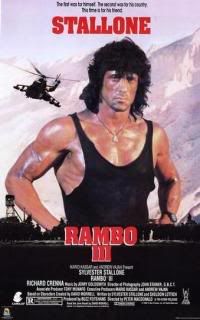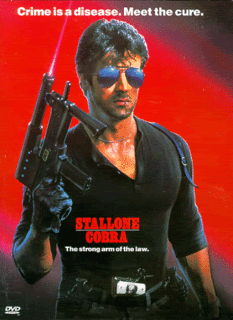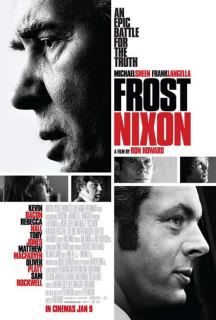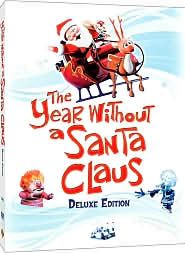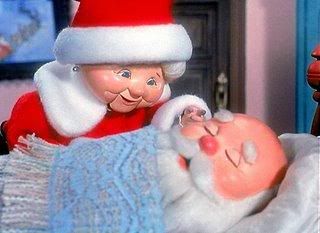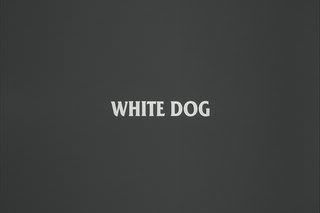
PLOT:
It begins with a black screen and the sound of a dog yelping in pain--a noise sure to set any animal lover’s teeth on edge. As the screen comes to life, we see Julie Sawyer (Kristy McNichol) on a dark and empty road. She’s just struck a white german shepherd, who lies motionless on the highway. Soon that very dog is a major part of her life. When a man breaks into her house and attempts to rape Julie, the dog defends her, refusing to let the attacker go until the police arrive. Julie’s told that she’s lucky to have such a guardian.
Unfortunately for Julie, it turns out that this particular dog is a “white dog,” an attack dog raised and trained by a racist to viciously assault and even kill people with black skin. Julie, understandably, is reluctant to put down the dog that saved her. Her only hope is a black animal trainer named Keys (Paul Winfield), a man driven to deprogram the white dog in what he sees is a direct conflict with white racism. But can anyone undo the damage that’s been done to the poor dog’s mind? And how many have to be put at risk before the white dog should be put down?
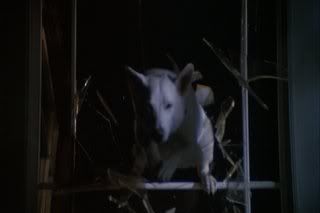
REVIEW:
Samuel Fuller’s White Dog kind of looks like a TV movie, and is more-or-less acted like one. Still, it’s not without its charms. While the main focus of the film is certainly racism, another, just as important theme is man’s cruelty towards animals. The white dog is an innocent, in a sense; we learn that, since it was a puppy, it has been programmed to attack black men, and the process was probably something like this: a black bum or junkie, having been paid by the dog’s owner, repeatedly beats the animal, until it learns to fear and hate black men on sight. As Keys explained, to the white dog, black men are only that--men with black skin. It’s merely a colour that the dog recognizes and attacks, without all the ideology of human racism. No matter how evil the dog may seem, it is only acting out human evil. One can’t help but sympathize with the dog.
But the violence against animals doesn’t end with the dog. Keys works with a man named Carruthers, and together they operate a business that trains wild animals for use in show business. The film doesn’t pussyfoot around exactly what this entails; the violence that is required to turn wild animals into trained, docile beings is displayed in full. Deprogramming the white dog (which never receives a name, oddly enough) is a violent affair as well, though in this instance it’s mostly a case of the dog attacking Keys until exhaustion again and again.
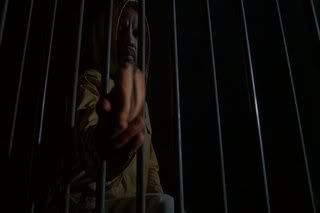
Certainly there are no A-list actors in the cast, but at least the principle actors acquit themselves well--most of the time. Paul Winfield (best known to fans of The Simpsons as the voice of Luscious Sweet) plays Keys (an otherwise underdeveloped character) as a man single-mindedly driven to “save” the white dog. To put the dog down, he believes, is to let the racists win, to let them destroy something else. Certainly it stretches believability when he is willing to circumvent the law in serious (and questionable) ways to give himself more time with the dog, but he’s convincing enough in his determination that we can almost buy it. Kristy McNichol, at least, plays a dog-lover well.
The real star, though, is the white dog itself, played by five different stunt dogs. They are really beautiful dogs, and even when the white dog is charging someone, intent on ripping that person’s throat out, you can’t help but notice what a stunning animal it is. It’s easy to empathize with a dog, too--a racist human, of course, would be far less sympathetic.
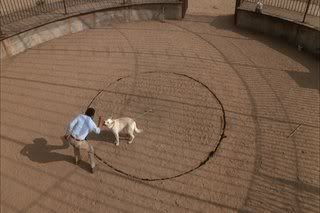
The Criterion Collection DVD of White Dog is everything you’d expect for a lower-tier release from the company. The presentation is good, and the extras are certainly suitable. A featurette that contains interviews with (among others) co-writer Curtis Hanson (writer/director of L.A. Confidential) offers some illuminating information on both Fuller and his film, as well as the trials behind making the movie, while another feature advertised as an “interview with dog trainer Karl Lewis-Miller” turns out to be excerpts from the man’s book. Also, I quite like the cover.
White Dog is a flawed film, troubled by some pretty blasé acting and some rather uninspired cinematography. It is, however, quite an interesting film, and if you can take the idea of a racist dog seriously after seeing the “Sheriff” episode of Curb Your Enthusiasm, I’d highly recommend it.

